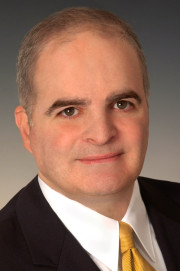LEGAL MATTERS: Religious Challenges to Obamacare
Wednesday, January 30, 2013
As part of Obamacare, insurance coverage must include contraception; what does the future hold for religious challenges? Photo: starbooze/flickr.
Obamacare
The Affordable Care Act, the official name of Obamacare, will impose crippling financial penalties on certain companies (50+ full-time employees) that don’t offer insurance covering all “contraceptive methods and sterilization procedures” approved by the Food and Drug Administration, including IUD’s and morning-after pills. Some religious teachings, including Roman Catholic orthodoxy, contend the pills are sinful, abortion-inducing and gravely immoral. The government believes it has accommodated those beliefs by exempting churches from the Act, but not everyone agrees.
Balancing Test
The Constitution addresses religion freedom in one sentence in the First Amendment: "Congress shall make no law respecting an establishment of religion, or prohibiting the free exercise thereof;"
GET THE LATEST BREAKING NEWS HERE -- SIGN UP FOR GOLOCAL FREE DAILY EBLAST“No law” is a strong statement but not as absolute as you might think. For instance, the Supreme Court upheld a law that prevented a Native American tribe from using peyote, a hallucinogenic drug, in its religious ceremonies. As Supreme Court Justice Scalia explained in that case, the First Amendment does not mean "an individual's religious beliefs excuse him from compliance with an otherwise valid law prohibiting conduct that the State is free to regulate."
Instead of striking down every law someone objects to on religious grounds, courts use a two-part test to decide whether a law violate the 1st Amendment. First, they consider whether the law “substantially burdens” a person’s ability to practice his or her religion. In the rare situation that a law does, courts then consider whether there is a compelling reason for the law and whether the government could achieve the goal of the law in a way that does not interfere with religious practices.
Applying basically that test, the Supreme Court has upheld zoning, labor, and tax laws that interfere with church activities. Courts have also held people have to pay taxes even though the government spends money on activities they object to on religious grounds, such as military spending and paying for abortions.
You Be The Judge
Now that you know a little about the law, consider how you would decide these cases:
1. A Catholic family owns a HVAC manufacturing company and supports the church’s teaching prohibiting all forms of artificial birth control. They do not discriminate against their non-Catholic employees, but they are open about their religious beliefs at work. Does requiring them to include coverage for the pill in their company’s health insurance plan violate their Constitutional right to practice their religion? (One lower federal court held it does.)
2. A devote Christian family owns a nationwide chain of hobby stores. They do not object to covering the pill, but they do object to having to cover the morning-after pill. Does it violate their rights to require them to include coverage for the morning-after pill? (A higher federal court recently held it does not.)
Would your opinion change if Jehovah’s Witnesses owned the companies and they objected to any coverage for care that involved blood transfusions?
3. A Roman Catholic Diocese employees people regardless of their religious views and provides social services to people of all faiths. Does it violate the organization’s rights to require it to provide birth control in the insurance plan its offers its lay employees? (Neither Rhode Island nor Massachusetts dioceses have filed suit against the Act, but about a dozen dioceses have; courts have decided the cases both ways.)
More Litigation
Obamacare will be litigated for years; not because lawyers like to sue, but because our Constitution is not as black and white as some people think it is.
John Longo is a consumer rights attorney practicing law in Rhode Island and Massachusetts. He represents consumers who have disputes with businesses, employees cheated out of their wages or overtime, car buyers stuck with Lemons, and people in need of bankruptcy protection. He is a member of the National Association of Consumer Advocates, the National Association of Consumer Bankruptcy Attorneys, and the Rhode Island Association for Justice.
Related Articles
- LEGAL MATTERS: Protecting Your Identity (and Sanity)
- LEGAL MATTERS: Lance Armstrong, Lawsuits + RI’s Whistleblowing Law
- LEGAL MATTERS: Are Extended Warranties Worth the Money?
- LEGAL MATTERS: Defibrillators in RI’s Public Places
- LEGAL MATTERS: Gift Cards—What Are Your Rights?
- LEGAL MATTERS: Why You Need To Use That Gift Card NOW
- LEGAL MATTERS: Should You Use Do-It-Yourself Legal Forms?




